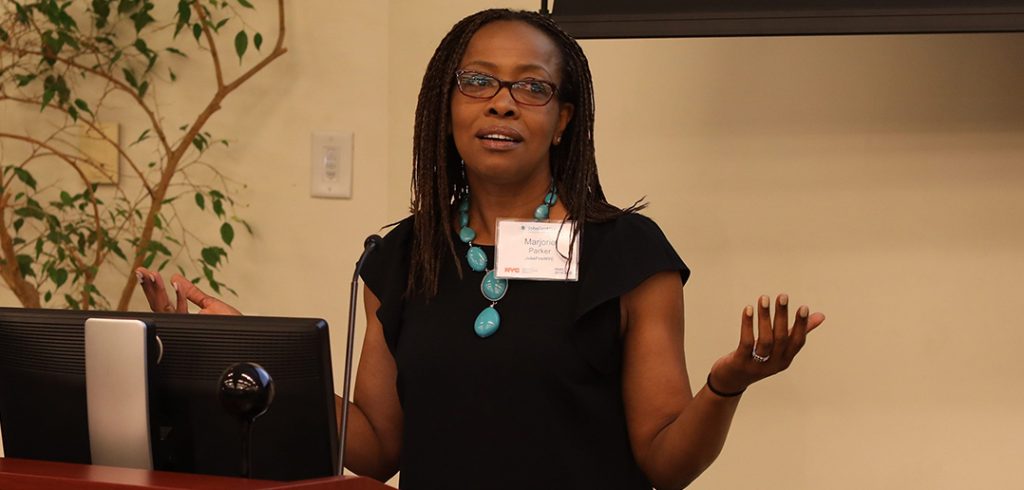Today, as president and CEO of JobsFirstNYC, Parker leads a nonprofit organization that bridges the young adult workforce to partners like employers, policymakers, and colleges and universities. Its mission is to “support young adults and their communities in the pursuit of economic opportunities.”
While JobsFirstNYC is largely focused on helping build systemic support for young people—work the COVID-19 pandemic and its economic effects have made even more urgent—Parker says employers and managers can do much to help create equitable workplaces where young leaders can develop.
At the start of her career, she says, it wasn’t unusual for managers to ask her to take the lead on projects. As one of six siblings and a former high school athlete, she understood the value of teamwork. But the experience she gained as a young professional helped her strengthen her interpersonal skills and build confidence as a public speaker.
She recently shared with us several ways organizations and employers can help create the best possible environment for their young workers.
Inclusivity needs to start early.
In order to build an inclusive environment in corporate America, you have to start early. That means [providing]internships and work-based learning. Your core of people that you have working for you now needs to begin to be exposed to the people that they’re not around. And they need not to see it as a social intervention, but as a professional experience for someone who wouldn’t have it. If you want to get diversity, you need to change your core. When that changes, then you begin to make different decisions about hiring, who you’re engaging, how you’re including people. In a country where you’re going to have a large number of people who are Black and brown in the workforce, you need to start investing now so that you can help to support the talent that you’re going to need.
Provide young people with leadership experience and exposure to external stakeholders.
The organizations I worked with were comfortable having me go out and speak about the organization and engage with investors early. I would be the person doing the workshop about the work that we do at the organization. And that led to me speaking at conferences locally, statewide, and nationally. That kind of ongoing exposure helped me to be very comfortable in front of people and develop some confidence. And it begins to help you figure out what things are yours—what you believe in—and what things are other people’s.
Engage in shared leadership models.
I worked at an organization called Opportunities for a Better Tomorrow and now at JobsFirstNYC. One thing that the leaders of these institution did was to engage in a shared leadership model with me. And what that meant was I knew I was the deputy, but they didn’t treat me like I was just the deputy leader. They called me a partner and presented me as a partner to investors and to community stakeholders.

